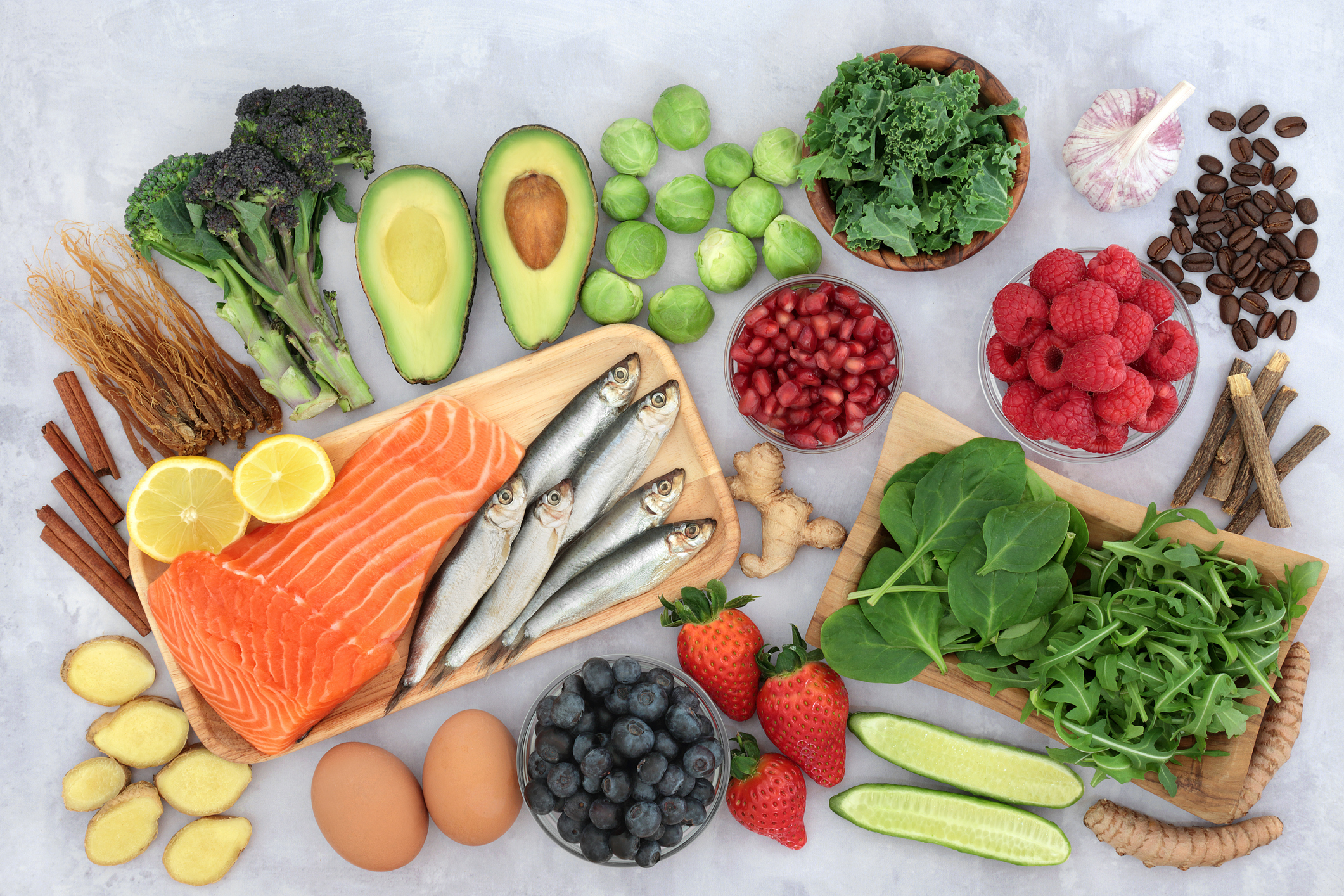In its acute form, inflammation is extremely beneficial to the body, mobilizing defense mechanisms faster to reach the site of injury faster so healing can begin.
Likewise, when our body detects a foreign invader, such as during exposure to an allergen, the inflammatory response is activated and signals our immune system to remove the foreign invader. Without this response, your body would struggle to heal at the speed that it does.
Inflammation becomes problematic when the response process continues longer than needed – this is known as chronic inflammation.
Chronic inflammation is believed to be the root cause of many conditions including autoimmune diseases like lupus and multiple sclerosis, heart disease, cancer, diabetes, asthma, and Alzheimer’s disease1.
While these conditions have many treatment modalities, food can be a powerful first line of defense as well as a complimentary support to conventional pharmaceutical interventions.
According to, Dr. Frank Hu, a professor in the Department of Nutrition at the Harvard School of Public Health, many experimental studies have shown that different foods may have anti-inflammatory effects2.
Following a diet rich in anti-inflammatory foods can help balance the body’s inflammatory markers while helping to reduce your risk of developing additional inflammation-related health issues in the future. So, which foods should you eat?
FIGHT INFLAMMATION NATURALLY WITH THESE 10 FOODS
1. BERRIES
In one study, it was reported that raspberries, blackberries, and blueberries are not only high in antioxidants but also have the highest antioxidant activity of all commonly consumed fruits3. Berries also contain resveratrol which can help lower blood pressure, resulting from chronic inflammation.
2. OILY FISH
Omega-3s found in oily fish can both inhibit inflammation and reduce it by interfering with immune cells called leukocytes and enzymes called cytokines, both of which play a role in the body’s inflammatory response. Good options of oily fish include wild salmon, mackerel, sardines, trout, and anchovies.
3. CRUCIFEROUS VEGETABLES
A Vanderbilt University study looked at the consumption of cruciferous vegetables and their effect on inflammation and found that participants eating the most cruciferous vegetables (1.5 cups) a day had substantially less inflammation than those who ate less4.
Additionally, those who consumed the most had lower levels of inflammatory markers in their blood. Broccoli, cauliflower, cabbage, bok choy, and Brussels sprouts are all part of the cruciferous family.
4. GREEN TEA
Green tea is an excellent source of polyphenols which are plant compounds with powerful antioxidant properties. They help fight free radicals and protect the body from cell damage. Plain green tea, sencha, matcha, and tencha are all great ways to get your green tea healthy hit.
5. ALLIUM VEGETABLES
These special vegetables include onion, leek, and garlic, all of which contain a powerful antioxidant called quercetin which has been shown to successfully treat chronic disease. Additionally, these vegetables can promote the production of glutathione which is known as “the mother of all antioxidants.”
6. TURMERIC & GINGER
Turmeric and ginger both have anti-inflammatory properties, and even small amounts can be beneficial. Studies have also shown they can help modulate chronic pain, too.
7. EXTRA VIRGIN OLIVE OIL
Olive oil contains a compound called oleocanthal which has powerful natural anti-inflammatory benefits. It exhibits the same anti-inflammatory response in the body as NSAID ibuprofen. Adding high-quality cold-pressed olive oil to your daily diet is a great non-steroidal anti-inflammatory to combat chronic pain and inflammation.
8. DARK CHOCOLATE
Chocolate contains antioxidants called flavanols. Remember, not all chocolate is created equal. You should always opt for chocolate that’s at least 70% cacao and free from sugar, soy lecithin, and milk solids.
9. DARK LEAFY GREENS
We already know how important it is to eat our greens. Not only do they contain a wide range of vitamins and minerals, but they can also help fight inflammation. The list is endless, but a few versatile favorites include spinach, chard, arugula, kale, endive, dandelion greens, beet greens, collard greens, and endive.
10. MUSHROOMS
Mushrooms contain a vast diversity of bioactive compounds that have a wide range of therapeutic effects. Their bioactive compounds exhibit significant anti-inflammatory properties and they have the power to modulate the immune system and bring it back into balance. Shitaki, matoki, enoki, reishi, cordyceps and lion’s mane are some mushrooms you should try.
REVERSE YOURSELF WELL
Making a conscious effort to incorporate these foods can help reduce inflammation as well as the frustrating and often debilitating pain that’s associated with inflammatory health conditions. It’s also important to identify and remove inflammatory foods like refined carbohydrates, sugar, and processed omega-6 oils in your diet, otherwise, you won’t reap the powerful medicinal rewards of these anti-inflammatory foods.
Remember, food is powerful and adding just a few of these foods to your daily diet can go a long way.
What’s your favorite anti-inflammatory food? Share in the comments below.


[…] continued HERE on The Institute of Transformational Nutrition […]